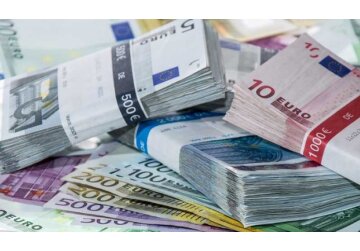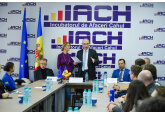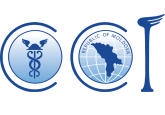
The EU has provided over 800 million euros to Moldova over the last year to help the country overcome the energy crisis, strengthen economic resilience and provide support in strategic areas.
The EU Delegation to Moldova reported this, noting that, in times of serious crises and challenges, the EU and its member states continued their investments in Moldova's economic recovery and supported measures to respond to the energy crisis. In particular, the Russian invasion of Ukraine and the use of energy resources for political pressure caused an unprecedented crisis. As a result, energy prices rose sharply, putting a serious burden on Moldovan citizens, who found it difficult to pay their bills. Moldova received more than 150 million euros in budgetary support from the EU to solve the energy crisis and help vulnerable groups. These funds have allowed some 700 thousand Moldovans to receive compensation to pay their energy bills. The EU has also provided financial assistance for Moldova's economic recovery. More than 150 million euros is financial aid in the form of loans and grants. Another 112 million euros is provided to strengthen the economic sustainability and business support. At the same time, more than 400 million euros are provided for strategic spheres: border management, investments in energy efficiency projects, defense sector modernization, cyber security etc. Recently, the European Union announced a new macro-financial assistance package of 145 million euros for Moldova. Investments continue in energy efficiency projects, as well as in sustainable and renewable sources. Regarding assistance in border management, the EU Delegation to Moldova noted that more than half a million Ukrainian refugees and increased cargo traffic from the neighboring country have complicated the work of the border system. To supervise the flow on the border and simplify it, the EU has provided financial and expert assistance of 30 million euros. The EU signed a cooperation agreement with Moldova on border management, which made it possible to bring teams of the European Border and Coast Guard Agency (Frontex) to work in our country, oversee the borders in cooperation with the Moldovan authorities, assist in information collection and information exchange. At the same time, the war in Ukraine severely affected trade routes and freight traffic. Accordingly, to improve the effectiveness of processes in both the short and long term, EUBAM experts have engaged in monitoring entry and exit points, jointly with Moldovan and Ukrainian customs authorities, to expedite the transport of agricultural products along the entire length of the Moldova-Ukraine border. To reduce the security threat to the European Union and countries in its immediate vicinity, the EU governing structures redirected more than 47 million euros to modernize the Moldovan defense sector. In addition, several meetings of the EU Support Hub for Internal Security and Border Management took place in Moldova. European officials, along with representatives of the Moldovan authorities, are looking for solutions that will strengthen cooperation and security in the region. The EU and Moldova have agreed to intensify the exchange of information in the field of financial investigations. Moldova will have access to EU instruments and networks, such as Europol, EUROJUST, FRONTEX, CEPOL, AMON and others. The EU has also contributed to strengthening food security in the region. The EU has resorted to comprehensive measures in strategic areas that have been affected by the war. Food security, in particular, suffered from the consequences of the war. The EU signed transport agreements with Ukraine and Moldova, which simplified the transport of goods and provided an immediate solution for the economies of both countries. The European Commission proposed to connect Moldova and Ukraine to the Trans-European Transport Network (TEN-T). The initiative envisages the extension of four transport corridors to Moldova and Ukraine. The purpose of this decision is to promote trade with the EU, and this measure will also contribute to food security in the region and restoration of transport infrastructure in Ukraine. The EU increased export quotas for 7 categories of Moldovan agri-food products in order to support local farmers and exporters, who lost access to traditional markets because of the war. Moldova was granted the opportunity to export large volumes of products without paying customs duties, and in some cases they are even twice as high. // 21.02.2023 – InfoMarket







